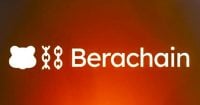South Korea's Rapid Growth in Stablecoins Meets Regulatory Hesitation
- South Korea is rising as a key stablecoin hub, balancing innovation with regulatory scrutiny as Tether and local projects reshape global finance. - Tether now holds $135B in U.S. Treasuries, surpassing nations like South Korea and UAE, positioning it as a major Treasury market influencer. - BDACS launched KRW1, a won-pegged stablecoin on Circle's Arc blockchain, aiming to integrate Korean businesses into global blockchain networks. - Bank of Korea warns of depegging risks for private stablecoins, contras
South Korea is quickly becoming a significant force in the worldwide stablecoin sector, as recent events highlight its balanced strategy of fostering digital currency advancements while addressing regulatory hurdles. Leading this trend is
As the largest stablecoin provider globally, Tether currently possesses $135 billion in U.S. Treasury securities, surpassing both South Korea and the United Arab Emirates to become the

At the same time, South Korea is charting its own course in stablecoin development. BDACS, a prominent digital asset custodian, has introduced
Regulation remains a key consideration. While Tether's growth aligns with U.S. initiatives supporting stablecoin-backed Treasuries, South Korea's central bank has voiced reservations. A June 2025
These developments carry significant global weight. Tether's accumulation of Treasuries highlights the increasing influence of stablecoins in mainstream finance, with some experts, as reported by Yahoo Finance, forecasting that the sector could generate $2 trillion in demand for U.S. debt by 2028. For South Korea, the introduction of KRW1 is a strategic move to harness blockchain for economic advancement, even as regulators strive to balance progress with financial stability.
As the stablecoin industry evolves, South Korea's method—carefully weighing government prudence against private sector drive—illustrates the ongoing challenge between innovation and regulatory control. With Tether and local projects like KRW1 transforming financial landscapes, South Korea's regulatory choices may serve as a model for other countries navigating the convergence of digital assets and traditional finance.
Disclaimer: The content of this article solely reflects the author's opinion and does not represent the platform in any capacity. This article is not intended to serve as a reference for making investment decisions.
You may also like
Berachain validators halt network for emergency hard fork to fix Balancer V2-related exploits

Bitcoin News Update: 8HoursMining Delivers a Reliable, High-Return Answer to Cloud Mining’s Trust Issues
- 8HoursMining offers Bitcoin holders cloud mining access via user-friendly platform with $18 welcome bonus and multi-crypto support. - Platform emphasizes security through McAfee/Cloudflare protection and bank-grade risk controls while enabling instant passive income via daily deposits. - High-yield contracts (6-30% returns) cater to both novice and experienced users with flexible hashrate adjustments aligned to market trends. - Transparent operations and 100% uptime guarantee address cloud mining's trust

Dogecoin News Update: Noomez Disrupts Meme Coin Traditions with a Planned Deflationary Approach
- Noomez ($NNZ) emerges as a deflationary presale project with 28 stages, burning unsold tokens to reduce supply and incentivize early participation. - Its $1.25M+ presale on Binance Smart Chain features a "Stage X Million Airdrop," referral bonuses, and locked liquidity to mitigate rug-pull risks. - Analysts contrast $NNZ's structured tokenomics and 66% APY staking with meme coins like Dogecoin, which lack deflationary mechanisms and face volatility tied to social media. - Post-presale plans include decen

"Chainlink and Chainalysis Collaborate to Deliver Cross-Chain Real-Time Compliance, Accelerating Institutional Adoption of Blockchain Technology"
- Chainlink and Chainalysis partner to launch real-time on-chain compliance tools, automating policy enforcement across multiple blockchains. - Integration combines Chainalysis's KYT risk intelligence with Chainlink's ACE framework, enabling programmable compliance controls for transactions and withdrawals. - The solution reduces manual oversight by providing deterministic outcomes, audit trails, and automated responses to suspicious activities starting Q2 2026. - This collaboration strengthens cross-chain
